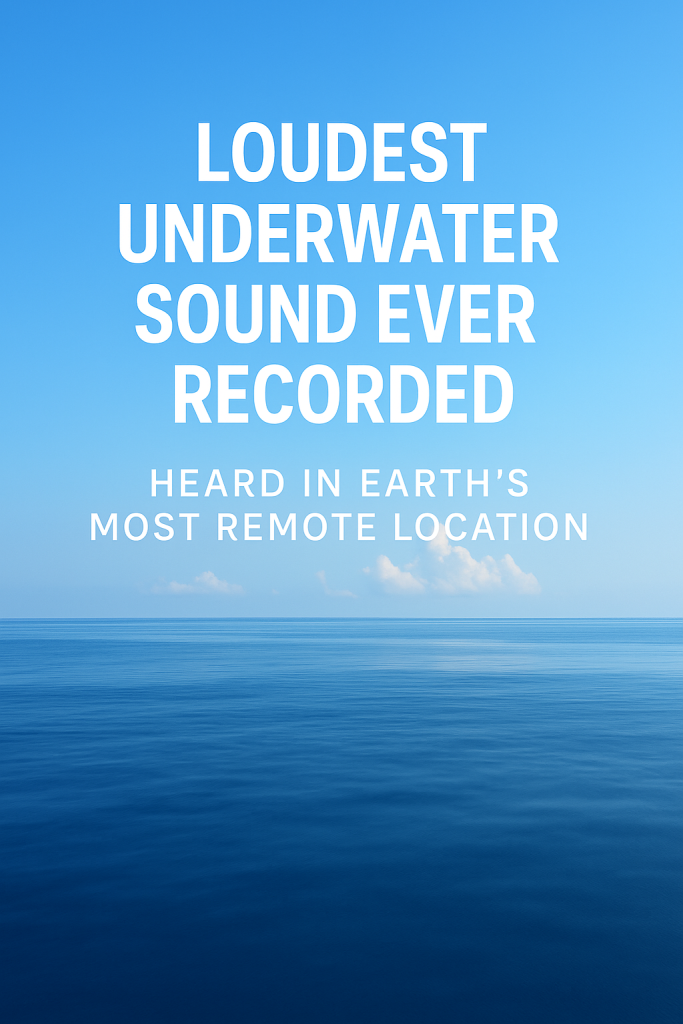In a groundbreaking marine discovery, scientists have recorded the loudest underwater sound ever detected in one of the planet’s most isolated oceanic regions. This extraordinary acoustic event, captured during a recent deep-sea monitoring expedition, has stunned researchers by its unprecedented intensity and rarity.
The sound was picked up in a vast expanse of the southern Indian Ocean, an area often described as Earth’s remotest place due to its extreme distance from human civilization and sparse marine traffic. This region, characterized by deep trenches and rugged underwater topography, has long been a prime location for oceanographers seeking to better understand deep-sea phenomena.
The recording event occurred during a routine deployment of deep-water hydrophone arrays, instruments designed to capture and study marine acoustic signals. Scientists detected a sudden, immense acoustic burst that dwarfed all previous recordings in terms of decibel levels and energy output. While exact measurements are pending comprehensive analysis, early data suggests the sound’s intensity exceeded levels typical of known natural underwater events such as whale calls, seismic activity, or underwater volcanic eruptions.
The origin of the sound remains the subject of intense investigation. Initial hypotheses range from rare geological activities—such as an extremely powerful subsea landslide or an uncharted volcanic explosion—to potential iceberg calving events occurring far below the ocean surface. Unlike typical man-made underwater noise, no associated shipping or industrial activities were recorded in the region during the event, bolstering the theory that the sound has a natural genesis.
Researchers emphasize the significance of this discovery for multiple scientific fields. Underwater acoustics plays a crucial role in studying ocean dynamics, marine biodiversity, and geophysical phenomena. This record-setting sound event offers a unique window into understanding deep Earth processes and how acoustic energy propagates through vast, uninhabited oceanic spaces.
Experts also highlight the implications for marine life, as exceptionally loud underwater sounds can influence animal behavior over large distances. Many marine species, including whales and dolphins, rely on sound for navigation, communication, and hunting. Understanding such intense sounds may shed light on possible effects—both immediate and long-term—on marine ecosystems inhabiting these remote waters.
Technology played a pivotal role in this breakthrough. Advances in hydrophone sensitivity, real-time data transmission, and AI-driven sound analysis allowed researchers to detect and isolate the signal from the ambient ocean noise. These tools are transforming ocean monitoring, enabling scientists to uncover phenomena once thought impossible to detect.
As researchers continue to analyze the data and attempt to pinpoint the source, this discovery underscores the vast unknowns still hidden beneath Earth’s oceans. Even in the 21st century, the deep seas hold spectacular surprises that challenge human understanding and highlight the critical importance of ongoing ocean exploration.
With further expeditions planned, scientists hope to capture more such events, refine their understanding of underwater acoustics, and unlock new knowledge about the planet’s mysterious final frontier.



